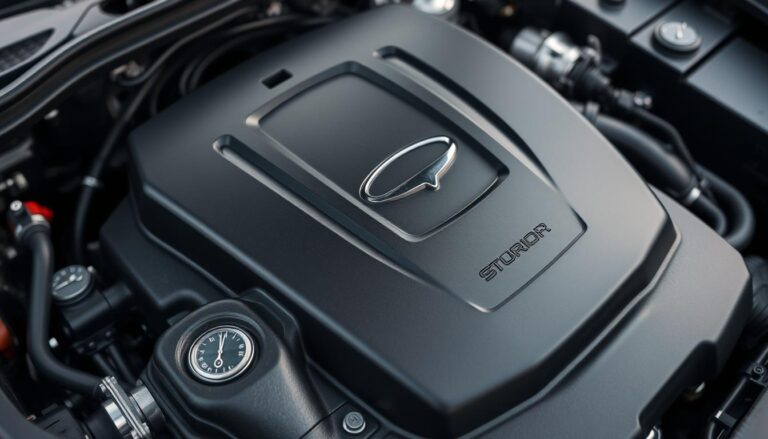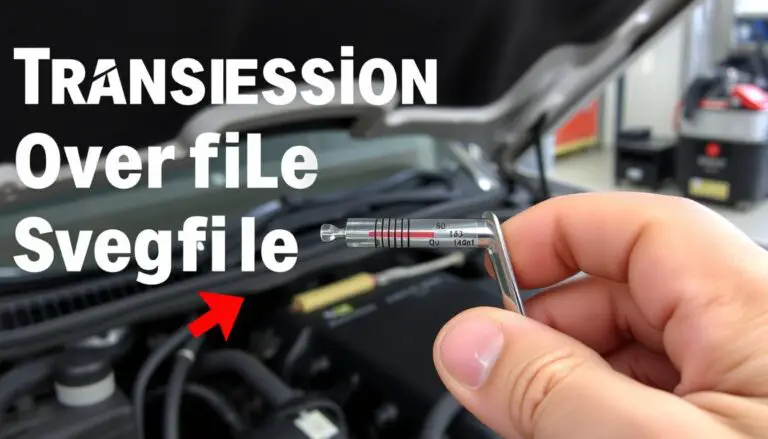The automotive industry has witnessed a significant shift towards cars with artificial engine noise, a feature that is gaining popularity among car enthusiasts. This trend is driven by the need to enhance the driving experience, particularly in electric vehicles that are inherently quiet.
Some car manufacturers have started incorporating sound-emitting systems to create a more engaging driving experience. These systems produce a range of sounds, from a gentle hum to a sporty roar, depending on the vehicle’s mode and speed.
Key Takeaways
- Artificial engine noise is becoming increasingly popular in the automotive industry.
- Electric vehicles are a key driver of this trend due to their inherent quietness.
- Car manufacturers are using sound-emitting systems to enhance the driving experience.
- The sounds produced can vary depending on the vehicle’s mode and speed.
- This feature is particularly appealing to driving enthusiasts.
Understanding Fake Engine Noise in Modern Vehicles
The automotive industry has witnessed a significant shift in how engine sounds are perceived and manipulated in modern vehicles. This change is driven by advancements in technology and shifting consumer preferences.
The Shift from Natural to Engineered Sound
Traditionally, the sound of a car’s engine was a direct result of its mechanical operation. However, with the advent of electric and hybrid vehicles, as well as advancements in noise reduction technology, many modern cars produce less engine noise than their predecessors. In response, manufacturers have begun to implement artificial engine sound systems to enhance the driving experience.
These systems use a combination of speakers and sound processing technology to create a more satisfying engine noise. For instance, some electric vehicles are equipped with external sound systems to alert pedestrians, while others use internal sound enhancement to create a more engaging driving experience.
Why Manufacturers Implement Sound Enhancement
Manufacturers implement engine sound enhancement for several reasons. Primarily, it’s to enhance the driving experience, making it more engaging and enjoyable. Some car enthusiasts discuss ways to disable these features, as seen in a forum post about disabling the engine harmonics enhancer in a 2020 CX-5, highlighting the complexity of consumer feelings towards fake engine noise.
By engineering the sound of their vehicles, manufacturers can also create a brand identity or associate their cars with certain performance characteristics, even if the actual performance doesn’t necessarily match the sound.
Complete List of Cars with Fake Engine Noise
As the demand for a more engaging driving experience grows, manufacturers have turned to sound design technology to enhance the auditory feedback of their vehicles. This technology is not limited to high-performance cars but has become prevalent across various segments, including luxury, performance, and mainstream vehicles.

Luxury Segment Sound Enhancement
Luxury car manufacturers have been at the forefront of incorporating sound design technology into their vehicles. This segment has seen significant innovation in enhancing the driving experience through artificial engine sounds.
BMW Active Sound Design Models (M3, M4, M5)
BMW’s Active Sound Design is a feature available in several of their high-performance models, including the M3, M4, and M5. This technology uses an actuator to generate sound that is emitted through the exhaust system, enhancing the driving experience.
Mercedes-Benz AMG Emotion Start
Mercedes-Benz’s AMG division has implemented the Emotion Start feature in some of its models. This system uses the vehicle’s sound system to generate an enhanced engine sound, providing a more engaging driving experience.
Audi Soundaktor-Equipped Vehicles
Audi has incorporated the Soundaktor technology into some of its models. The Soundaktor is an actuator that generates sound, which is then amplified through the vehicle’s audio system, creating a more dynamic driving experience.
Performance and Sports Cars
Performance and sports cars have also seen a significant integration of fake engine noise technology. These vehicles often rely on sound enhancement to provide a more exhilarating driving experience.
Ford Mustang EcoBoost and F-150
The Ford Mustang EcoBoost and certain trim levels of the F-150 have been equipped with sound enhancement technology. This technology amplifies the engine sound, making the driving experience more engaging.
Volkswagen GTI, Golf R, and Jetta GLI
Volkswagen has implemented sound enhancement technology in models such as the GTI, Golf R, and Jetta GLI. This technology uses an actuator to generate additional sound, enhancing the vehicle’s auditory feedback.
Porsche Sound Symposer Technology
Porsche’s Sound Symposer technology is designed to enhance the engine sound by using a membrane to transmit engine noise into the cabin. This creates a more immersive driving experience.
Mainstream and Economy Vehicles
The use of sound design technology is not limited to luxury and performance vehicles; it has also been adopted by mainstream and economy car manufacturers. This technology helps to enhance the driving experience, making these vehicles more appealing to a wider audience.
Toyota GR Models and Lexus F Sport
Toyota’s GR models and Lexus’s F Sport series have incorporated sound enhancement features. These features are designed to provide a more engaging driving experience by amplifying the engine sound.
Kia and Hyundai N-Line Vehicles
Kia and Hyundai have introduced N-Line vehicles that feature sound enhancement technology. This technology is used to create a more dynamic driving experience, appealing to enthusiasts.
Technologies Behind Artificial Engine Sounds
The quest for a more engaging driving experience has led manufacturers to adopt various technologies that generate or enhance engine sounds. This shift is driven by the need to provide a more immersive experience for drivers, particularly in electric and hybrid vehicles where the traditional engine noise is either significantly reduced or absent.

Speaker-Based Enhancement Systems
One of the primary methods used to create artificial engine sounds is through speaker-based enhancement systems. These systems utilize speakers installed within the vehicle to produce sound that mimics the engine noise. The sound is often tailored to match the vehicle’s performance characteristics, enhancing the driving experience.
Mechanical Sound Actuators and Symposers
Another technology employed is mechanical sound actuators and symposers. These devices are designed to generate sound through mechanical means, sometimes by vibrating components or using other mechanisms to produce the desired engine sound. This approach can create a more authentic auditory experience.
Digital Sound Processing and Amplification
Digital sound processing and amplification play a crucial role in refining the artificial engine sound. Advanced algorithms are used to process the sound, ensuring it is synchronized with the vehicle’s operation and tailored to the desired auditory profile. Amplification enhances the overall sound quality, making it more convincing and engaging.
By combining these technologies, manufacturers can create a wide range of engine sounds, from the roar of a high-performance sports car to the gentle hum of a hybrid vehicle. This not only enhances the driving experience but also allows manufacturers to brand their vehicles with a unique sound identity.
How to Identify and Disable Fake Engine Noise
Identifying whether your vehicle uses fake engine noise can be a straightforward process if you know what to look for. Modern cars often employ sophisticated sound enhancement systems, making it essential for drivers to understand how these systems work and how to verify their presence.
Telltale Signs Your Vehicle Uses Sound Enhancement
Several indicators can suggest that your vehicle is equipped with engine sound enhancement technology. These include:
- An unusually loud or aggressive engine sound that doesn’t seem to match the vehicle’s actual engine performance.
- The presence of a sound system or speakers that appear to be specifically designed to enhance engine noise.
- A noticeable difference in engine sound between different driving modes (e.g., sport mode vs. economy mode).
To further verify, you can observe how the engine sound changes when you shift gears or accelerate. Vehicles with genuine engine sounds typically produce a more natural and varied noise, whereas those with sound enhancement systems might produce a more consistent or amplified sound.
Methods to Verify Artificial Sound Systems
To confirm whether your vehicle uses an artificial sound system, you can:
- Consult your vehicle’s manual or manufacturer’s documentation to look for mentions of sound enhancement technology.
- Inspect the vehicle’s sound system and look for speakers or components that seem to be dedicated to engine sound enhancement.
- Observe the engine sound during different driving conditions and compare it with the sounds produced by similar vehicles without sound enhancement.
Disabling or Modifying Sound Enhancement Features
If you wish to disable or modify the sound enhancement features in your vehicle, you can try the following:
| Method | Description | Potential Outcome |
|---|---|---|
| Check vehicle settings | Look for options within the vehicle’s infotainment or settings menu to disable sound enhancement. | Sound enhancement disabled or reduced. |
| Consult a dealership or mechanic | Contact a professional to assess and potentially modify or disable the sound enhancement system. | System modified or disabled; potential warranty implications. |
| Aftermarket modifications | Explore aftermarket solutions or tuning options that can alter the sound enhancement system. | Customized sound profile; potential impact on vehicle warranty. |
It’s essential to consider the potential implications of modifying or disabling your vehicle’s sound enhancement system, including any effects on your warranty or overall driving experience.
Consumer Reactions and Industry Controversies
The automotive industry’s adoption of fake engine noise has sparked intense debate among consumers and manufacturers alike, particularly with the advancement of sound design technology. This controversy encompasses various aspects, from enthusiast community reactions to manufacturer justifications.
Enthusiast Community Perspectives
Car enthusiasts have been vocal about their mixed feelings towards fake engine noise. Some argue that it enhances the driving experience, while others see it as an unnecessary gimmick that detracts from the authenticity of the vehicle’s performance. For instance, a study among car enthusiasts revealed that 55% preferred the natural sound of their vehicle’s engine, while 30% appreciated the enhanced sound provided by sound design technology.
| Preference | Percentage |
|---|---|
| Natural Engine Sound | 55% |
| Enhanced Sound | 30% |
| Indifferent | 15% |
Manufacturer Justifications and Marketing Strategies
Manufacturers justify the use of fake engine noise as a means to enhance the driving experience and to comply with increasingly stringent noise regulations. According to a representative from a leading automotive company, “Sound design technology allows us to balance performance with environmental considerations.” For more insights on controversial vehicles, visit Gadget Review’s article on the worst cars to.
“The future of automotive sound is not just about being loud, it’s about being emotive and engaging.”
Authenticity Debates in Automotive Engineering
The debate over authenticity in automotive engineering centers on whether the use of fake engine noise compromises the integrity of the driving experience. Critics argue that it does, while proponents see it as an evolution in automotive design. As sound design technology continues to evolve, it’s likely that this debate will persist.
Conclusion
The automotive industry’s adoption of fake engine noise has sparked intense debate among car enthusiasts and consumers. As discussed, various manufacturers have incorporated sound enhancement technologies into their vehicles, including luxury and performance cars.
A comprehensive List of Cars with Fake Engine Noise reveals the widespread use of this technology across different segments. From speaker-based systems to mechanical sound actuators, the methods used to create artificial engine sounds vary, influencing the driving experience.
As the industry continues to evolve, understanding the implications of fake engine noise on consumer perception and the authenticity of the driving experience is crucial. By examining the technologies and controversies surrounding this trend, we can better appreciate the complexities of modern vehicle design.
The future of automotive engineering will likely involve a balance between innovative sound design and the desire for authenticity, shaping the way we experience driving.
FAQ
What is fake engine noise?
Fake engine noise refers to the artificially generated sounds emitted by a vehicle’s sound system to enhance the driving experience, often used in cars with quiet or electric engines.
Why do manufacturers use fake engine noise?
Manufacturers use fake engine noise to create a more engaging driving experience, enhance the vehicle’s sporty or performance image, and compensate for the lack of natural engine noise in electric or hybrid vehicles.
How do I know if my car has fake engine noise?
You can check your vehicle’s features and settings to see if it has a sound enhancement system, or look for signs such as an unusually loud or artificial engine sound.
Can I disable fake engine noise in my car?
It depends on the vehicle’s make and model; some cars allow you to disable or modify the sound enhancement feature through settings or software updates, while others may not.
Are all electric vehicles equipped with fake engine noise?
Not all electric vehicles have fake engine noise, but some manufacturers use sound enhancement systems to create a more engaging driving experience or to comply with safety regulations requiring audible warnings for pedestrians.
What is the purpose of sound enhancement technology in luxury vehicles?
In luxury vehicles, sound enhancement technology is often used to create a more premium driving experience, enhance the vehicle’s performance image, and provide a more engaging auditory feedback.
Can fake engine noise be considered deceptive?
Some argue that fake engine noise can be seen as deceptive, as it creates an artificial auditory experience that may not accurately reflect the vehicle’s actual performance or characteristics.
How do different manufacturers implement sound enhancement technologies?
Different manufacturers use various sound enhancement technologies, such as speaker-based systems, mechanical actuators, and digital sound processing, to create unique driving experiences and brand identities.


